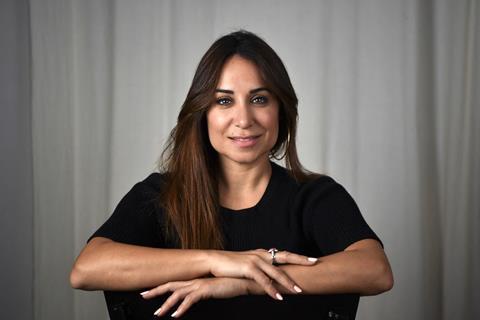
French-Tunisian filmmaker Erige Sehiri works on the margin of fiction and documentary, a blend which has proven very successful for her.
In 2018, Sehiri’s breakout feature documentary, Railway Men, screened for six weeks in Tunisian theaters. In 2021, Under The Fig Trees, her first fiction feature, which she wrote, directed and produced, premiered at Cannes as part of Directors’ Fortnight.
Sehiri’s next project Marie & Jolie is a fiction feature. It is being showcased in the Atlas Workshops, the talent development programme of the Marrakech International Film Festival. She says it is about “an Ivorian woman pastor, a trafficker and an art student living together in a tense Tunisia”.
Currently in pre-production, Marie & Jolie is slated to shoot in 2024.
The film was inspired by events in February in Tunisia, “when sub-Saharan migrants were attacked in the media and on the streets by a section of the population and politicians, leading to violence, arbitrary arrests and the expulsion of thousands of people,” reveals Sehiri.
What interested her most about this subject matter was “the traditional solidarity: the Church, the students, and the human chain we need to create when we are in danger”. For the film, she will again use both professional and non-professional actors to create that shifting boundary between reality and fiction in which she moves as a director.
Through her own production company, Henia Production, based in Tunisia’s seaside town of La Marsa, Sehiri develops Tunisian auteur-driven documentaries. But for Marie & Jolie, she pairs once again with Didar Domehri of France’s Maneki Films, who produced Under The Fig Trees and is co-producing Karim Aïnouz’s upcoming Motel Destino.
Coming into the Atlas Workshops, Sehiri is looking for co-producers and funding, and says that even though Under The Fig Trees was Tunisia’s submission to the international feature Oscar category in 2021, raising finance is not any easier.
“Visibility allows you to be heard more and sooner for the next film, but as far as funding is concerned, it’s still just as difficult and a long way off,” admits Sehiri. “Nothing is taken for granted in this business, and it seems to take more than a successful film for doors to open easily.”
She and Domehri are hoping that both African and European TV channels will attend their pitch and watch the rehearsal footage. “We’re here to find collaborators who’ll fall in love with the project and invest in it with us, so that it can be shot in 2024.”
Given the current situation in the Middle East, Sehiri thinks this year’s Marrakech International Film Festival will be “full of debate, and strong emotion”.
So what does she consider the strength of the Atlas Workshops? “Individual and face-to-face meetings are the best,” she says. “Also, the quality and variety of projects and filmmakers, and being able to fully participate in both the industry and the festival.”

























No comments yet